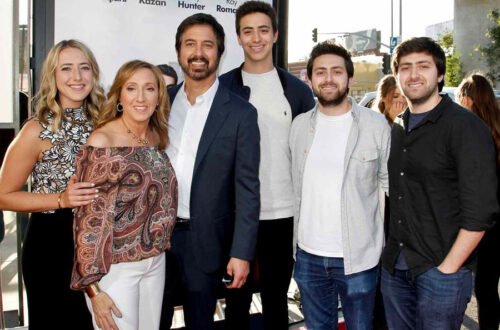Early Life and Background
Born in Ghana to an Ewe family, Nee Abloh’s adventure began. Growing up in this lively West African nation shaped his ideals and outlook. Ghana, with its rich customs and colourful festivals, is a mix of ethnicities, giving Nee a perspective that valued culture and community.
Nee bravely moved to the US in the 1970s for better chances and a better future for his family. This move typified many immigrants’ desire to combine their home customs with American opportunities. After moving to Rockford, Illinois, Nee started a family and became a community leader.
Career and Contributions
Nee Abloh managed a Rockford paint firm after working hard to establish himself in the US. His job at the company showed his work ethic and dedication to his family. Nee demonstrated his realistic approach to life by managing the company’s operations, which he passed on to his children.
Despite the demands of his business life, Nee remained quite active in the local community. His impact was felt through the different community initiatives he funded. He believed in the value of giving back and frequently participated in local events aimed at improving the neighbourhood, demonstrating to his neighbours that wealth was achievable through hard work and cooperation.
Family and Personal Life
Nee and Eunice Abloh raised their children to value education and creativity. Eunice, a skilful seamstress, and Nee gave their children a solid foundation, encouraging them to follow their passions while embracing their culture.
Virgil Abloh, their son, became a fashion icon. Virgil often pointed to his parents’ support and direction for his achievement. Nee and Eunice taught Virgil the value of invention and tiny contributions, which he illustrated in his 3% rule: that small changes can lead to major cultural achievements.
Legacy and Influence
Nee Abloh’s legacy is clearly carried on by his offspring. Virgil’s influence in the fashion business has given global exposure not only to the Abloh family, but also to Ghana’s lively and varied culture. Nee’s emphasis on ethnic pride and community duty has extended beyond generations, inspiring not only his family but also those who knew him.
In Rockford, Illinois, Nee is revered. Local art displays and community events honour his life and work. Many immigrants struggle to combine their ethnic identities and adoptive homes like Nee, who blended his Ghanaian and American identities.
Cultural contributions of the Abloh family
Persistence, cultural pride, and community engagement define the Abloh family. Nee’s 1970s journey from Ghana to the US symbolises immigrant life—a desire for opportunity and cultural blending. Many families want to preserve their ancestry while assimilating into American society.
The ideals Nee taught Virgil Abloh are evident in his fashion success. His distinctive approach to design, which mixes architectural principles with streetwear aesthetics, is influenced by his father’s practicality and mother’s inventiveness. The family believes that tiny improvements may make a big difference, as shown in the 3% rule.
Community Engagement and Philanthropy
Nee Abloh supported local social and economic development activities, showing his community engagement. His involvement in religion, mentorship, and neighbourhood events showed his community spirit. Nee’s commitment to these causes forged ties and inspired citizens in Rockford and beyond to volunteer.
His humanitarian endeavours went beyond mere participation; Nee was frequently at the vanguard, organising events and distributing supplies to those in need. This mentality of giving back is a defining feature of the Abloh legacy, inspiring others in the community to follow suit and contribute to the collective well-being.
Conclusion
Abloh’s life is weaved from cultural pride, community involvement, and family devotion. From his Ghanaian beginnings to his strong presence in Rockford, Illinois, Nee forever changed those who knew him and the globe through his offspring. His narrative shows how cultural heritage and personal dedication may leave a legacy.



